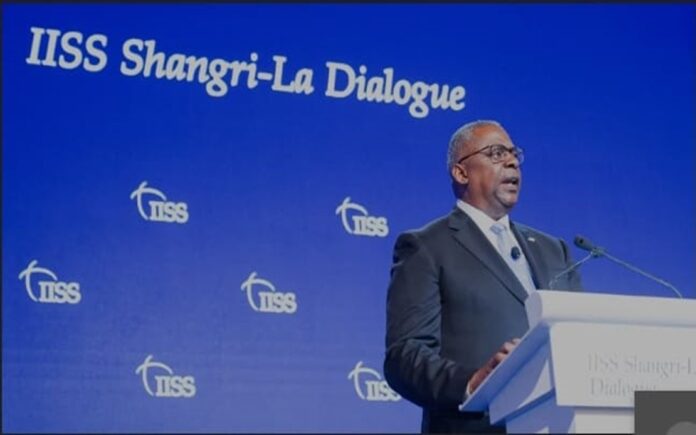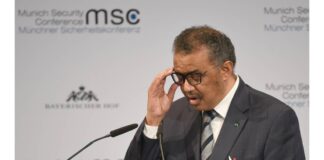SINGAPORE, June 3 — The United States is working together with its friends “more closely every day”, said Secretary of Defence Lloyd J. Austin III.
“We are doubling down on our alliances and partnerships,” he said in his remarks titled “A Shared Vision for the Indo-Pacific” at the 20th Shangri-La Dialogue in Singapore, today.
Austin said the US National Defence Strategy calls for the country to work more closely with its allies and partners at every stage of defence planning.
“That spirit of partnership drove our work together to help the region recover from the worst days of the pandemic, including providing more than 360 million safe and effective vaccine doses.
“And that same spirit will help us tackle other shared threats, from climate change to nuclear proliferation,” he said.
Austin noted that the shared goals are clear, that is “to deter aggression and to deepen the rules and norms that promote prosperity and prevent conflict.”
“So we are stepping up planning, coordination, and training with our friends from the East China Sea to the South China Sea to the Indian Ocean,” he said.
That, he said, includes staunch allies such as Australia, Japan, South Korea, the Philippines, and Thailand.
It also includes such valued partners as India, Indonesia, Vietnam, and Singapore, he added.
Citing an example, Austin said the US and the Philippines recently designated four new locations under their Enhanced Defence Cooperation Agreement.
“That will let our forces work together to strengthen Philippine security, continue to modernise the Philippine military, and deliver humanitarian aid and disaster relief.
Austin highlighted that President Biden’s Fiscal Year 2024 budget request includes the largest procurement budget in the history of the Department of Defence, and the largest investment ever in Research & Development (R&D).
“His budget includes a 40 per cent increase over last year’s request for the Pacific Deterrence Initiative to an all-time high of US$9.1 billion,” he said.
The US, he said, is making bold investments in airpower, including an additional US$61 billion for its F-35s, F22s, and uncrewed aircraft.
The super power is also investing in an expanded fleet of subs, carriers, and destroyers as well as in space, cyber security, and long-range fires, including hypersonics.
“And at every point, we are committed to sharing the advances that we have made to help our partners,” he said.
Austin noted that “our work together has made this region stronger and safer.”
The US, he said, will continue to stand by its allies and partners as they uphold their rights.
“We will maintain our vigorous, responsible presence across the Indo-Pacific. And we will continue to work to ensure that no one country can assert control over shared waterways,” he said.
In the South China Sea, Austin said the US will continue to work with its allies and partners to uphold freedom of navigation and overflight.
“And let me again underscore the importance of the 2016 ruling by the Arbitral Tribunal. It is legally binding, and it is final. “We won’t be deterred by dangerous operational behaviour at sea or in international airspace”, he said.
According to Austin, the Indo-Pacific has become an extraordinary example of “human progress and peaceful cooperation.”
“Conflict and strife are not inevitable. But peace and progress are not automatic. The region’s growing openness and prosperity show the importance of working together, and not letting ourselves be split apart.
“The people of the Indo-Pacific have a wider view and a wiser vision. Together, we can deepen the region’s security,” he said.
This is Austin’s seventh trip to the region as Secretary of Defence, and his fourth trip to Southeast Asia.
















